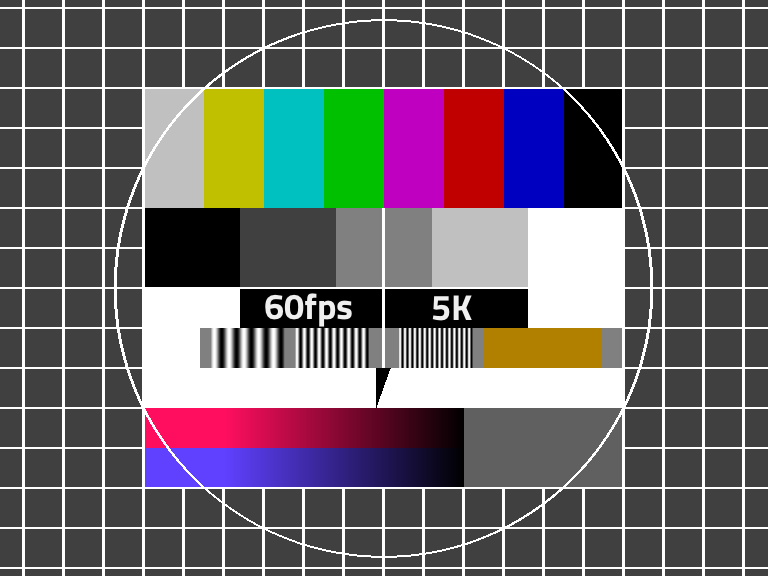Alugha Updates | March 2022 - what's new at alugha
Here at alugha, we love technology and leveraging it in creative ways for our users to provide unique features and a stellar experience.

Read this article in: Deutsch, English
Estimated reading time:3minutesWas about time that YouTube presents something new. From now on Users have the possibility to upload and replay videos, believe it or not, with 60 pictures per second (60p / 60 fps). If you now think, that’s it - it’s not. As well from now on YouTube offers the possibility to upload videos with a 5K resolution. What this means to you and why alugha is even more important than ever - read below.
60 pictures per second - a pleasure not only for gamers
Gamers dreams finally come true. YouTube offers the possibility for a video play back of 60 pictures per second. Why was this innovation eagerly awaited? So far videos on YouTube were replayed with a frame rate of 30 pictures per second as maximum. With twice the frame refresh rate the video giant launches a completely new viewing experince. Not only video games, also even sport events or visually stunning documentations can be displayed a lot more realistic. The difference is enormous. Look here:
https://www.youtube.com/watch?v=xDMP3i36naA
With alugha 5K becomes green
Besides the 60fps update you also have the possibility to upload videos with a 5K resolution. More precisely 5.120 x 2.700 pixel. This resolution is currently only supported by the new Apple 5K iMac and the Dell UltraSharp 5K display. The second one is not available on the market yet. The ones who don’t have one of these two displays can only enjoy the sound without the pictures of the new full 5K video “Snow Monkeys” of Jacob Schwarz.
5K also means - especially when looking at multilingual videos - an enormous storage increase. Imagine how big a 5K video file is! If you have a 5 minute clip, which you render out of your video programme for example Prores422 HQ, than the file has a size of about 35 Gigabyte. For our Disney example in 30 languages these are incredible figures! Because of exactly this increase the status of alugha in the modern video scene becomes even more important. A transition of the videos into a 5K resolution obviously generates tons of traffic. Due to the higher resolution and the by that occuring data traffic an increasing storage need becomes necessary. The required server need to be cooled and need energy. But not only the upload, also the streaming of videos generates a higher traffic. Let’s assume that the video is supposed to be uploaded in several languages, you quickly see that it’s bekomming a climate killing Domino effect. If you don’t want to give up providing your video in 5K, you can save ressources by using alugha. Because different audio files will be uploaded to the respective video, you are not only having a higher reach, you also save traffic and storage capacity. Producer and user benefit from a video with a 5K resolution - without damaging the environment. Sample calculation?
Disney’s Let it go
Basis: h264 (up to 4K), 32Bit color depth, 225sec Length, 25fps = ~33.1GB
without alugha:
Upload traffic -> 30 languages/videos = 30 * 33.1GB = 993GB
Storage -> (original)33.1GB + (4K)9.6GB + (1080p)2.2GB + (720p)930MB + (480p)351MB + (360p)101MB = ~46GB * 30 languages = 1.3TByte!
with alugha:
Upload traffic -> 1 Video = 33.1GB + 29 languages * ~5MB/language = 145MB = 33.245GB
Storage = (original)33.1GB + (4K)9.6GB + (1080p)2.2GB + (720p)930MB + (480p)351MB + (360p)101MB = ~46GB + 145MB for the languages = 46.145GB
| without | with | savings in GB | in % | |
|---|---|---|---|---|
| Upload | 993GB | 33.25GB | 959GB | 96,6% |
| Storage | 1380GB | 46.15GB | 1334GB | 96,7% |
| Code | Name | Views | Percentage |
|---|---|---|---|
| eng | English | 1,163 | 82.66% |
| deu | Deutsch | 244 | 17.34% |
| Total | 1,407 | 100% | |
Here at alugha, we love technology and leveraging it in creative ways for our users to provide unique features and a stellar experience.
Here at alugha, we love technology and leveraging it in creative ways for our users to provide unique features and a stellar experience.
“Management is the art of orchestrating best possible collaboration in an organization.” Where this “art” (for me) combines both, the willingness and the ability to act. Both have to be reflected in the two main areas of management: in the function “management” (the “how” and “what”) and the instit
Alugha is a video translation tool that streamlines the production and collaboration process for high-quality content tailored to international audiences. Learn more at: https://appsumo.8odi.net/get-the-starter-pack You’re ready to share your videos with the whole wide world. But like a certain co
IZO™ Cloud Command provides the single-pane-of-glass for all the underlying IT resources (On-premise systems, Private Cloud, Cloud Storage, Disaster Recovery, Amazon Web Services, Microsoft Azure, Google Cloud Platform, etc). About Tata Communications: Welcome to Tata Communications, a digital ecos
A revolutionary new service in the video industry! Our report is about the unique alugha platform. Alugha gives you the tools to make your videos multilingual and provide them in the language of your viewers. Learn more about the great features of the platform here: https://alugha.com/?mtm_campaign